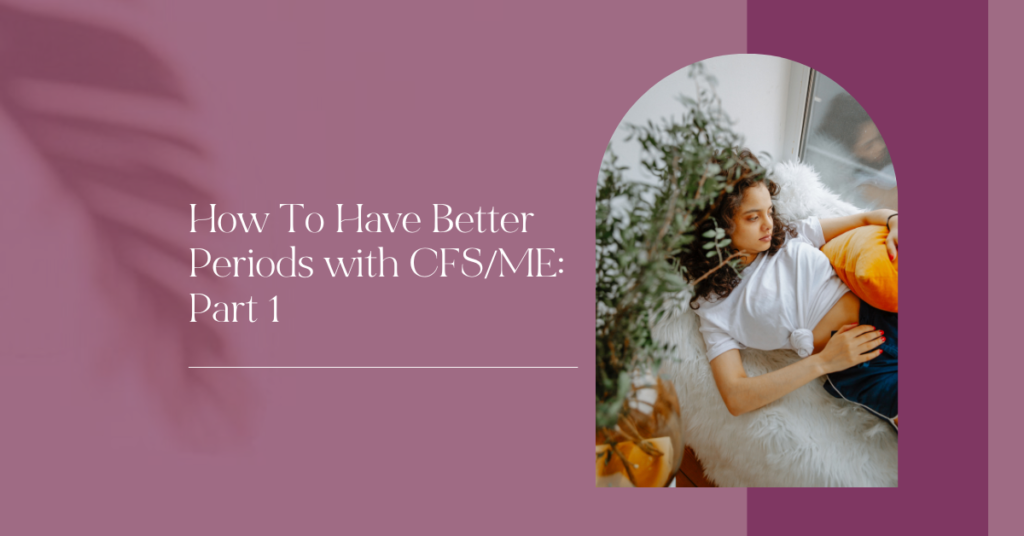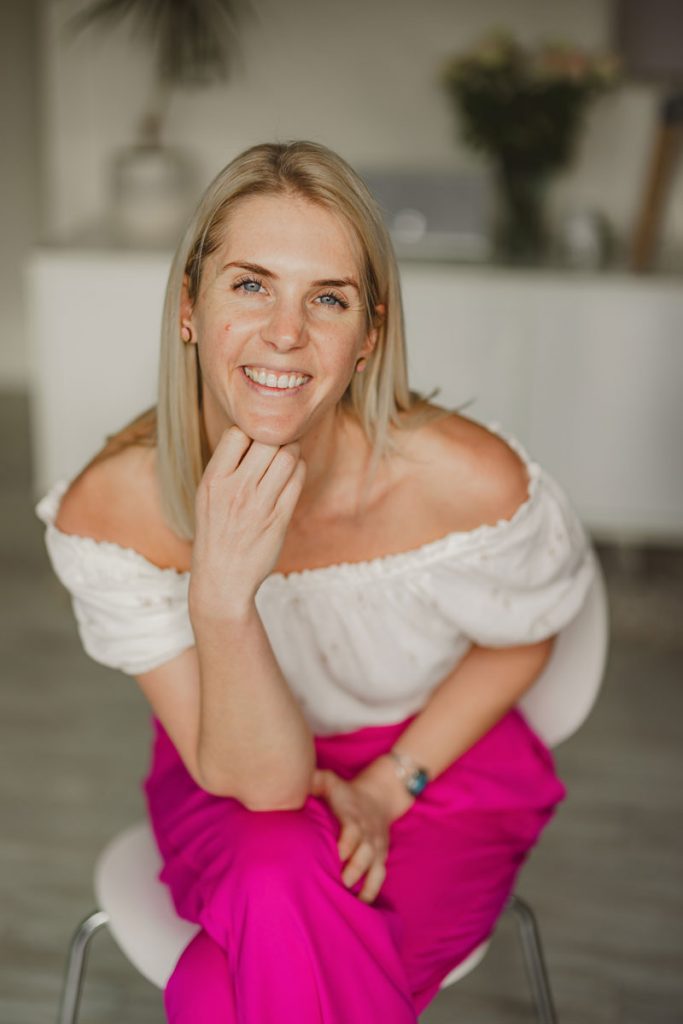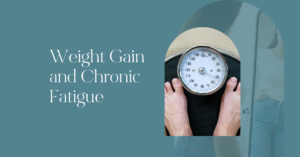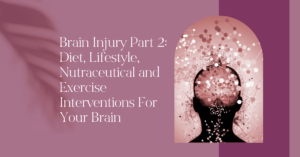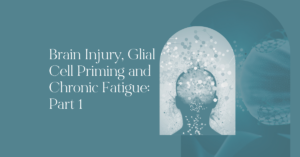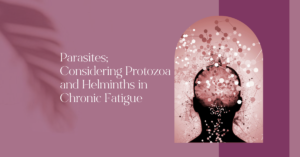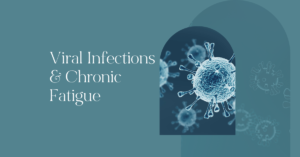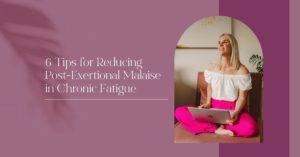When I was at my lowest point with CFS/ME my monthly period was never something to look forward to. I would suffer from what I call “period flu” which was a heightening of CFS symptoms including fatigue, body aches, headaches, sometimes migraines and brain fog.
The headaches would often linger almost 10 days into my next cycle. Once I ovulated, I could feel pretty good for about 10 days. But the impending doom of the whole process repeating itself again was always hanging over my head.
I am happy to report that this is no longer the case. I might still experience a little dip in energy at that time of the month. But my period no longer gets in the way of me living my life nor do I experience the debilitating highs and lows as my hormones fluctuate.
So how do you get to a place where you are in control of your hormones and your hormones aren’t controlling you?
The first thing to know is: as you feel better as a whole, you may notice that you generally experience less highs and lows during your cycle.
I like to think of the sex hormones as the volume control in the body. They can turn the volume up and down, but they cannot change the tune. Therefore, if your body is singing the tune of pain, inflammation and nervous system dysregulation, hormonal fluctuations will turn the volume up and down on these symptoms across the month. If your body is singing the tune of regulation, the difference of hormonal amplification is less notable.
Therefore, when it comes to feeling more regulated generally and across a hormonal cycle we want to consider:
- Focussing on more regulated physiology generally
- Focussing on hormonal regulation specifically – for less erratic highs and lows
Before you can do this, it can be helpful to understand:
- What should be happening in a healthy hormone cycle?
- What can go wrong?
- Where can we intervene to support better hormone balance?
The former will be addressed in this blog today. The latter will be addressed in part 2.
What should happen in a healthy hormone cycle?
Even if you don’t have a cycle or your cycle is irregular, it can be helpful to understand what “should” be happening in a healthy cycle and what can go wrong.
Your hormone levels will change across your cycle and with the rise and fall of different hormones you may notice changes in your mood, energy, sleep, digestion, cognitive function, weight, skin or water retention. The extent to which your hormones are imbalanced may often be reflected in the extent to which these aspects of your wellbeing fluctuate. Greater fluctuations, likely means more imbalances.
Your cycle is made up of 3 phases:
- The Follicular phase which is typically days 1-14 but can range from 7 to 21 days depending on the person.
- Ovulation, which lasts 1 day
- The Luteal phase which lasts for 14 days after ovulation. Therefore, if you ovulate on day 21 of your cycle you may menstruate on day 35 of your cycle.
A healthy menstrual cycle may last for anywhere between 21 and 35 days.
PHASE 1: FOLLICULAR PHASE (DAYS 1-14)
The follicular phase starts on the first day of your bleed. You may experience some spotting as your cycle begins, day 1 is typically the day where you have a steady flow.
An ovarian follicle is a sac that contains one egg or ocyte. It is the part of the ovary that produces progesterone, oestrogen and testosterone. It can take up to 100 days for your follicles to mature from a dormant state to ovulation. The follicular phase of your cycle is when a few follicles, usually about 6 to 8, enter the final days of their maturation.
In the follicular phase of your cycle, FSH stimulates your follicles and they produce oestrogen. As oestrogen rises you may notice fertile mucus excreted from your vagina in your underwear or on toilet tissue when you use the bathroom. It should have a sticky egg-white presentation. Its purpose is to help the sperm to “get where they are supposed to go”.
PHASE 2: OVULATION
Ovulation occurs when LH ruptures the sac containing the egg of a dominant follicle. You may notice a twinge or pain on one or both sides of your pelvis. Adequate levels of oestrogen, FSH and LH are all needed for ovulation to occur.
Looking out for fertile mucus can help you assess when you ovulate. However, fertile mucus is produced by oestrogen so it may be present at times even when you do not ovulate. Therefore a more reliable way to test whether or not you have ovulated is by measuring LH using urine test strips or you can monitor changes in your body temperature.
PHASE 2: LUTEAL PHASE (DAYS 15 – 28)
After ovulation the ruptured ovarian follicle transforms into a temporary endocrine gland known as the corpus luteum. Ovulation is essential to the production of this gland and this gland is essential for progesterone secretion.
The role of progesterone is to support pregnancy should your egg become fertilised. However, progesterone also balances oestrogen. Additionally it:
- Reduces inflammation
- Promotes sleep
- Calms the nervous system
Progesterone now becomes the dominating hormone to support implantation of a fertilised egg. If fertilisation does not take place, the corpus luteum shrinks, progesterone levels drop and your uterus will shed its lining. Your period begins.
If you had a healthy corpus luteum and you were able to produce enough progesterone, then your period should be smooth sailing, without pain, clots or other symptoms.
If you do not ovulate, then you will not form a corpus luteum and progesterone production will be compromised. However, you may still have a period, therefore do not accept the fact that you have a cycle as a guarantee that you are ovulating. If you have an anovulatory cycle you will have unopposed oestrogen or oestrogen dominance.
CYCLE FAQS
What does it mean if your period is late?
Your period should come every 35 days. If your period comes later than this it could mean that you had a long follicular phase or that you did not ovulate and this may also mean that progesterone, for this cycle at least, is low. You may want to consider reasons why ovulation failed, for example stress, insulin resistance and inflammation. If you are concerned, you may want to check your thyroid hormones.
What does it mean if your period comes early?
Your period should come no sooner than 21 days. If your period comes early you may not have ovulated or your follicular phase was a little shorter than normal. A shorter follicular phase is common in perimenopause. You may want to consider reasons why ovulation failed, for example stress, insulin resistance and inflammation. If you are concerned, you may want to check your thyroid hormones.
What does it mean if you bleed or spot mid cycle?
Oestrogen peaks prior to ovulation, as it dips after its pre-ovulation surge, it may trigger a bleed. This is normal and more common if you have lower than average oestrogen. Sometimes mid-cycle bleeding can be due to endometriosis, uterine fibroids, polyps or a pelvic infection. If you have any concerns it is always best to see your doctor.
What does it mean if my period is very light?
A healthy period may be blood loss between 25ml and 80ml, which you can measure by using a moon cup. A light period could mean one of several things; you did not ovulate, you have mistaken some mid-cycle bleeding for your period, you have low iron levels. If you are confident that you have ovulated then you could have lower than average oestrogen levels which could be due to under-eating or high amounts of foods known as phyto-oestrogens in your diet. Phyto-oestrogens include soy, flaxseed, sesame seeds, wheat, berries, oats, barley, dried beans, lentils, rice, alfalfa, mung beans, apples, carrots, wheat germ and rice bran.
What does it mean if my period is very heavy and clotty?
A healthy period may be blood loss between 25ml and 80ml. Therefore a period which exceeds 80ml of blood loss would be considered heavy. When blood flow is heavy your body doesn’t have time to keep up with anticoagulant activity and this means you may see clots in your menstrual blood. There may be many causes for heavy flow such as failure to ovulate, thyroid dysfunction, endometriosis or adenomyosis. The most common cause is an imbalance between oestrogen and progesterone where oestrogen is high relative to progesterone levels, often what is referred to as oestrogen dominance.
What does it mean if my period is very painful?
A small amount of pain as you initiate your period may be acceptable. However, pain which requires painkillers or impacts your life is not normal. Period pain is caused when inflammatory molecules, known as prostaglandins, are released by the uterus. When oestrogen is the dominating hormone a greater amount of these pain causes molecules are released and you will experience more pain. Period pain can be improved by better balancing hormones and supporting inflammation. If you experience extreme period pain you should visit your doctor to investigate endometriosis or adenomyosis.
What does it mean if my period lasts more than 7 days?
A prolonged period is a flow of more than 7 days. You may want to visit your doctor to investigate uterine fibroids or polyps. Other causes could be failure to ovulate often due to PCOS or perimenopause.
In the next blog we’ll cover “what can go wrong?” with the hormone cycle in a lot more detail. If you are interested in receiving more help and support with your hormones specifically and fatigue recovery generally, you can explore your options for working together here.

